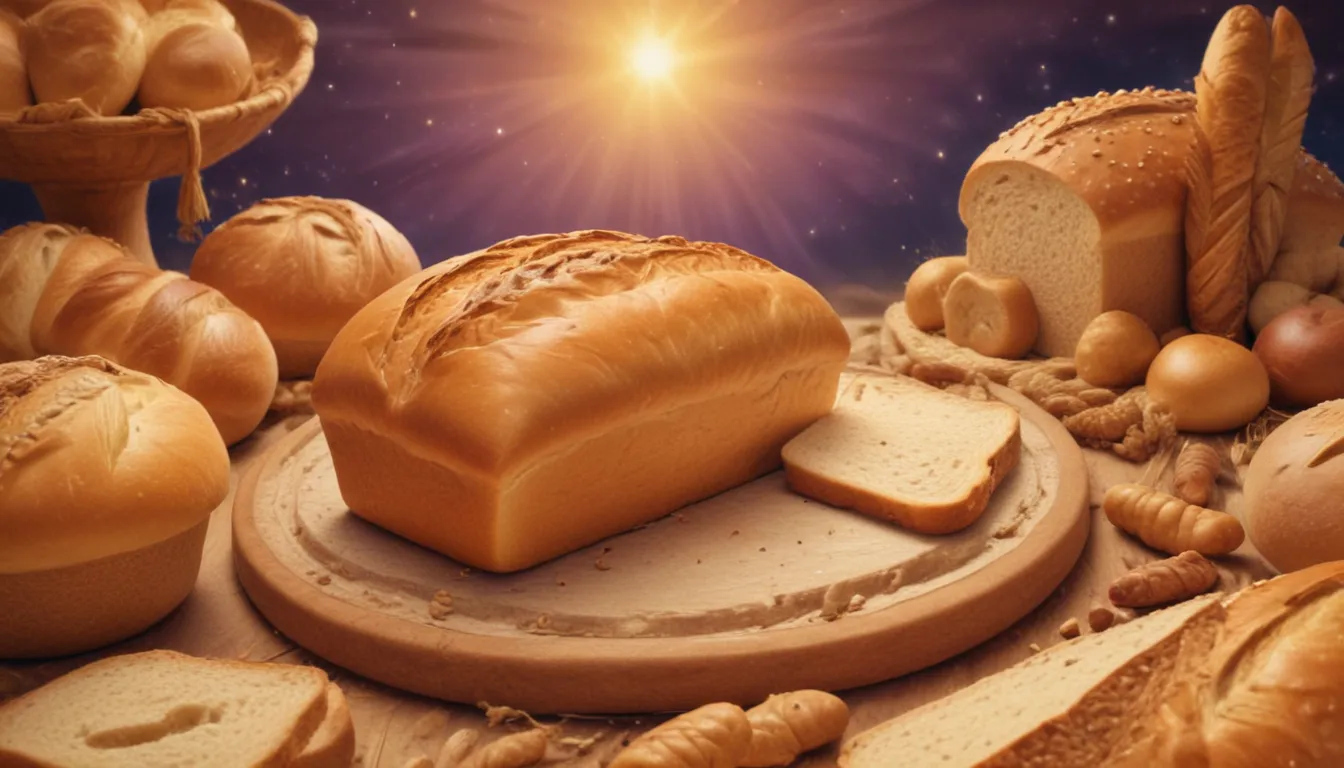
Bread holds a significant place in the Bible and is often used as a symbol for spiritual nourishment, sustenance, and communion with God. This comprehensive guide will explore the various ways bread is mentioned and used throughout the Scriptures, providing you with a deeper understanding of its spiritual significance.
The Bread of Life: Jesus’ Teachings on Bread in the Gospels
One of the most well-known references to bread in the Bible comes from Jesus himself. In John 6:35, he says, “I am the bread of life; whoever comes to me will never hunger, and whoever believes in me will never thirst.” This passage highlights Jesus as the source of eternal life and spiritual nourishment for those who follow him.
Throughout his teachings, Jesus uses bread as a symbol for himself, emphasizing that he is the ultimate provider of sustenance for believers. In the famous miracle of feeding the 5,000, he takes five loaves of bread and two fish to feed a massive crowd (Matthew 14:13-21). This event serves as a foreshadowing of his sacrificial death on the cross and resurrection, providing salvation for all who believe.
Bread in the Old Testament: A Symbol of God’s Provision and Faithfulness
In the Old Testament, bread often represents God’s provision and faithfulness to his people. In Exodus 16, the Israelites are miraculously provided with manna from heaven during their journey through the wilderness. This incident demonstrates God’s sustaining power and his ability to meet the needs of his chosen people.
Another example can be found in Leviticus 24:5-9, where twelve loaves of bread are placed on a table before the Lord as a symbol of the twelve tribes of Israel. This arrangement signifies that God is their source of nourishment and guidance, providing strength for each tribe to fulfill its purpose within the community.
Bread in the New Testament: A Symbol of Communion and Fellowship with Christ
Bread plays a crucial role in the Christian sacrament of communion (also known as the Eucharist or Lord’s Supper). According to Matthew 26:26-29, during the Last Supper with his disciples, Jesus took bread, blessed and broke it, and gave it to them, saying, “Take and eat; this is my body.” He then did the same with the cup, declaring that it represented his blood.
This act of sharing bread and wine symbolizes unity among believers and serves as a reminder of Christ’s sacrifice on the cross. Participating in communion allows Christians to partake in spiritual nourishment, drawing closer to God and one another through fellowship with Jesus.
Bread in Jewish Tradition: Shabbat and Other Celebrations
In Jewish tradition, bread is an essential component of many rituals and celebrations. One notable example is the Shabbat meal, during which two loaves of challah (a special braided bread) are typically served to represent the double portion of manna collected on Fridays in the wilderness. This custom commemorates God’s provision for his people throughout history.
Bread is also central to Passover celebrations, as unleavened bread (matzo) is used during the Seder meal. Matzo serves as a reminder of the haste with which the Israelites fled Egypt, as they had no time to let their dough rise before baking it into flatbreads.
Conclusion: The Enduring Spiritual Significance of Bread in Our Lives Today
Throughout the Bible and various religious traditions, bread has served as a powerful symbol of God’s provision, faithfulness, and sustenance for his people. Whether it’s Jesus’ teachings on the “Bread of Life” or the sharing of communion among believers, bread continues to hold deep spiritual significance today.
By understanding the various ways bread is used throughout the Scriptures, we can better appreciate its enduring role in our lives as a reminder of God’s love and grace. As you break bread with friends and family, may you be reminded of the spiritual nourishment it provides and the fellowship we share with one another in Christ.
Key Takeaways:
– Bread symbolizes God’s provision and sustenance for his people throughout the Bible.
– Jesus referred to himself as the “Bread of Life,” emphasizing that he is the source of eternal life and spiritual nourishment for believers.
– In Jewish tradition, bread plays a significant role in rituals such as Shabbat and Passover, reminding us of God’s faithfulness and provision throughout history.
– By participating in communion, Christians are able to partake in spiritual nourishment and draw closer to God through fellowship with one another.





